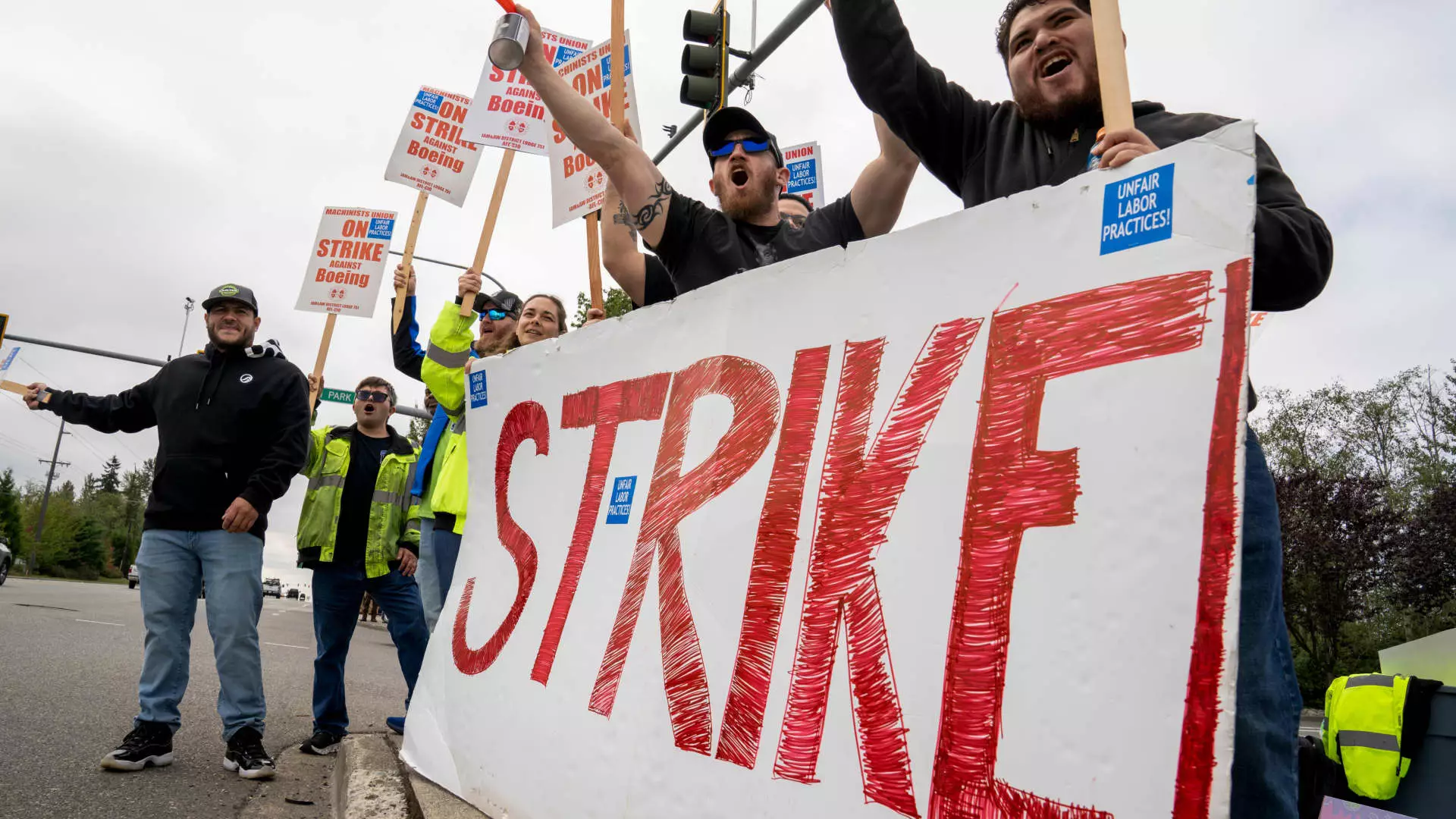Boeing recently intensified its negotiations with the International Association of Machinists and Aerospace Workers (IAMAW) as the company faces a critical moment in its operations. The strike, which has paralyzed the production of aircraft for over a week, represents not just a standoff between labor and management, but also an urgent call for resolution in an industry grappling with escalating challenges. Boeing’s latest proposal, touted as their “best and final” offer, aims to ease the tensions dramatically rising among its workforce, affecting more than 30,000 machinists.
Details of the New Proposal
The new contract offer, which includes a 30% wage increase over four years—up from the initial 25%—is a shift designed to appease disgruntled employees. Additionally, Boeing has reinstated annual bonuses and increased the one-time ratification bonus from $3,000 to an enticing $6,000. This strategic enhancement is essential as workers express concerns over the cost of living in the Seattle area, which has surged significantly in recent years. By also sweetening the 401(k) matching contributions, Boeing is aiming to present a comprehensive package that reflects recognition of the machinists’ grievances.
However, the IAMAW’s ongoing review of the proposal reflects a labor force that remains cautious. Union president Brian Bryant emphasized that the proposal’s alterations illustrate to employees that better conditions are possible. This sentiment resonates deeply among machinists, many of whom took to picket lines during the strike to express their overwhelming discontent with the previous offer, which had received a massive 94.6% rejection vote. Reports indicate that machinists are not only steadfast in their demands but have also begun exploring side jobs to manage their financial burdens during this period of uncertainty.
As the strike drags on, financial analysts have highlighted the staggering costs associated with the work stoppage, with figures suggesting losses could reach $50 million daily. Analysts are increasingly concerned about the potential risk of credit ratings downgrades if the stalemate persists. Boeing’s management has responded with severe measures, including deliberately furloughing non-union employees and implementing hiring freezes while curbing travel expenses. This austerity underscores the critical need for a resolution, as both sides grapple with the economic fallout of continued unrest.
As the deadline for ratification looms, the outcome of these negotiations will likely serve as a pivotal moment in Boeing’s labor relations history. The company’s willingness to enhance its offer may signal a deeper commitment to its workforce, yet it remains contingent on union approval. The strike, which mirrors the frustration and aspirations of workers nationwide, underscores larger trends in labor relations—where employees are unwilling to settle for less in times of rising living costs. How this conflict resolves could redefine the company’s relationship with its employees and set a precedent for other industries facing similar contentious negotiations.


Leave a Reply